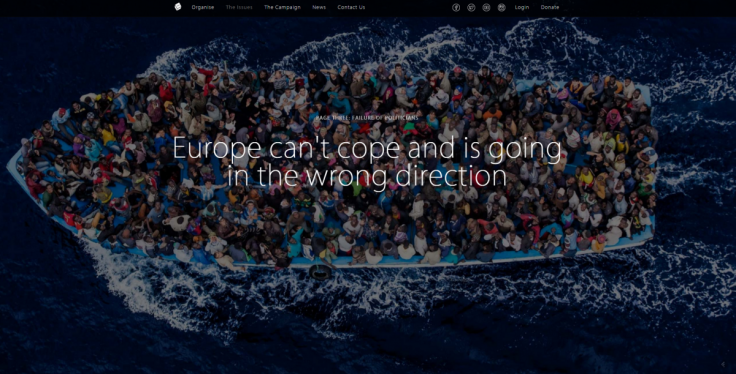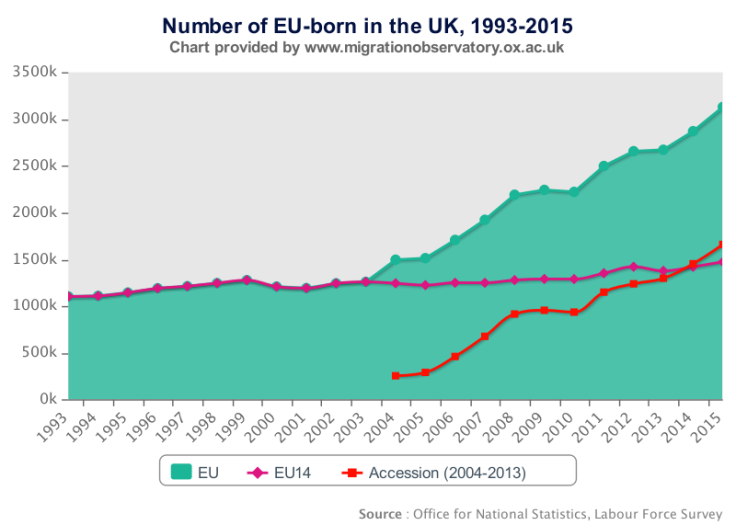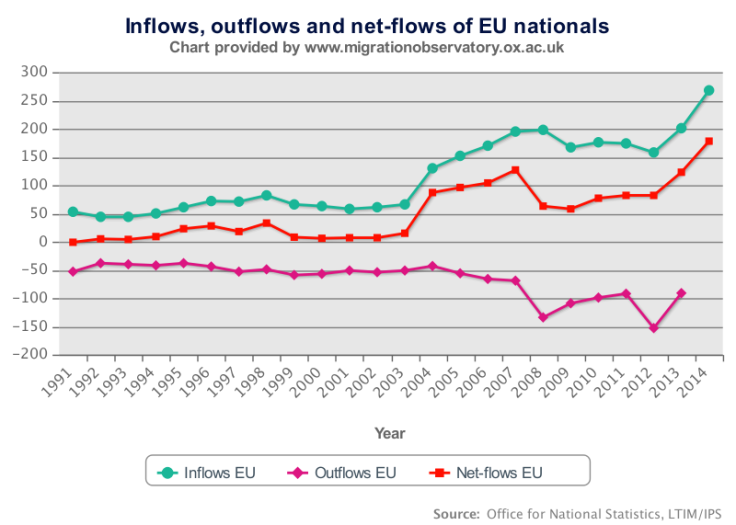EU referendum: Why isn't immigration a major issue for the Vote Leave campaign?

Immigration matters a lot to most people in Britain. It is the single most important political issue on their minds. And the biggest driver of immigration to the European Union because of its open borders policy for the 28 member states.
Yet Vote Leave, the best funded, best backed and most credible campaign group for a "leave" vote in the EU referendum, by its own admission, is not prioritising immigration as a major issue. Indeed, it only gets one decent mention on its website – and even that does not come with the big migration numbers often used to intimidate and provoke the public.
Paul Stephenson, a spokesman for Vote Leave, told IBTimes UK "we don't major on immigration in the campaign per se". He added: "Immigration is a major issue for lots of people whether they support in or out. But the biggest issue is whether they believe the in campaign scares about losing their jobs if we leave the EU. That's why we are focusing mainly on economic arguments."
Despite this, given prominence on the website is a giant aerial-view picture of a packed boat in the Mediterranean carrying economic migrants and refugees to Europe. Emblazoned over it are the words "Europe can't cope". A popular argument against immigration, but the copy attached is about something else. And the language of "control" – the group's tagline is "vote leave, take control" – is often used in the context of borders and immigration.

"Obviously we talk about control, but I reject the assertion that it's mostly associated with borders," Stephenson said. "I think control is a message that is used time and time again with the EU. You've lost control over key policy areas, as well as immigration, so areas like our economy, public services and so on.
"The EU's current migration policies are literally inhumane and they have been handling the migration crisis terribly. So I think having a picture of a boat that depicts that quite clearly is absolutely reasonable."
We can have a fairer, more humane migration policy. We stop the current immoral, expensive, and out of control immigration system that means an open door to the EU while blocking people who could contribute to the UK coming from non-EU countries. We make it easier for some to come, such as scientists and job-creators, and impossible for others to come, such as convicted criminals
Concern about immigration hit the highest level ever recorded by pollster Ipsos MORI during September, as the migrant and refugee crisis set the political scene. Its issues index recorded 56% for immigration concern among Britons after a 6% increase, well above the second biggest issue of concern, the NHS, on 36%.
Immigration has been an ongoing topic of fiery debate in Britain, especially after the EU expanded to included poorer eastern and central European states, such as Poland, Romania and Bulgaria, giving the citizens of those countries the right to live and work in the UK.
Critics of mass immigration say it brings significant cultural problems and puts an unreasonable burden on infrastructure. But proponents say immigration makes the country better off, plugs skills gaps and enriches society by bringing cultural diversity.
The separate Leave.EU campaign, backed by millionaire Ukip donor Arron Banks, has made immigration an issue of priority. But it does not carry the same cross-party support of the newly launched Vote Leave, which has the backing of Labour and Conservative MPs, as well as the only Ukip MP, Douglas Carswell.
To appeal broadly, it is perhaps unwise to make a big fuss about immigration from Europe. Many of those who oppose the EU are very supportive of immigration and believe it has substantial economic benefits. What they do not like is EU bureaucracy, the erosion of national sovereignty and questions about democratic accountability. Pro-immigration, but anti-EU.


So it is far more tactful to focus on these arguments rather than immigration, a debate that often turns ugly and risks turning off people who would otherwise be supportive. Better to show subtly that it understands concerns about immigration than to come out swinging and shouting.
Leave that to Leave.EU, which is deeply embedded in the already convinced eurosceptic Ukip-end of British politics, and cast a wider net for support elsewhere in the country – the mass of undecided EU referendum voters who will decide what happens. Whoever wins over the undecideds wins the referendum.
A focus on the economic arguments takes the fight to "in" campaigners on their turf. Pro-EU advocates say Brexit would close off access to the world's largest market of 500 million citizens, meaning businesses and people would leave, trade barriers would go up and the economy would be seriously hurt -- with thousands of job losses. They are making their case in economic terms.
Vote Leave says the UK could negotiate a lucrative new free trade deal with the EU, as well as the rest of the world – something it cannot unilaterally do as an EU member. And it will no longer have to send taxpayers' money to Brussels, or rely on the sluggish, outdated EU institutions to plan for the economy of the future -- one of significant scientific and technological advance. It will take back total control over its economic affairs.
This campaign is pitching itself as broadly as possible. It has more to say than a simple message of border control and that will appeal much more widely than banging on about the perils of EU immigration. As an American politician once put it: it's the economy, stupid. Vote Leave agrees.
© Copyright IBTimes 2024. All rights reserved.






